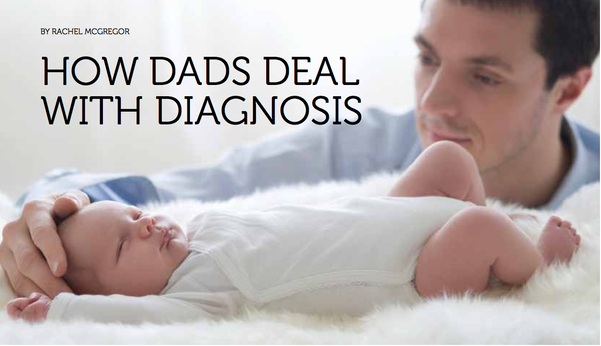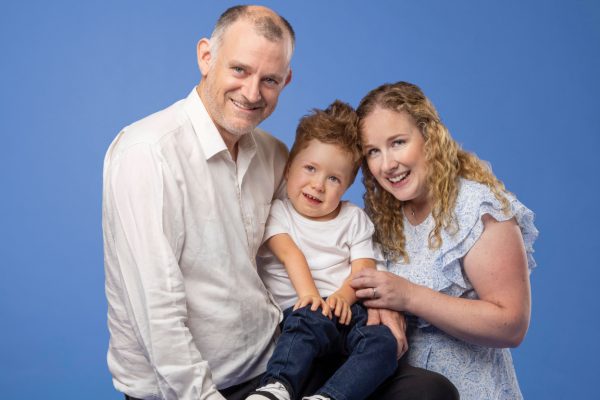
How dads deal with diagnosis
By Rachel McGregor AMAPS
When your child is diagnosed, reactions can range from shock and denial through to relief and a sense of gratitude that there is an answer.
There will also, usually, be an element of grief. I have found that dads can feel a tremendous sense of disappointment about the loss of certain dreams and desires for their child, which they worry will be out of reach. I have met many fathers who have experienced professional and worldly success who have learned of their child’s diagnosis and have had to face frustration and disappointment that their child may not be successful in the exact same way they have been. They must now discover new ways that their child can be successful and this takes them on a new journey with their child.
Sometimes dads can experience anger about their child’s diagnosis. They may even be frustrated with the practitioner who gives the diagnosis and feel resentment about their child being given a ‘label’ as they feel their child will be limited by it or misunderstood. Sometimes they will experience guilt or a sense of blame.
For some dads, learning of their child’s diagnosis brings incredible clarity as to why their child behaves, talks or responds in a particular way. In this sense, a diagnosis can bring some sense of relief. This is especially important if the diagnosis takes place several years into the child’s life and the parents have experienced years of misunderstandings. It may be like a series of jigsaw pieces clicking into place, and there can be a sense of relief about this. Dads may respond with less overt emotion, but with deep reflection and introspection. It can also cause them to reflect on their own experience as a child, especially if they experienced any difficulties. This can take time to process.
I have found that many dads respond to the diagnosis with a stronger focus on wanting to know the ‘solution’ and what needs to happen next. Many dads want to know facts, the information and the potential outcomes for their child. They want to know what they can do. Many dads are wonderful to work with when interventions are carried out. They like to know the steps to take and often follow through with strategies quite efficiently. They often ask good questions too! I really appreciate it when dads email me and ask direct, practical questions. They will seek clarity on things.
When mums receive a diagnosis, they may respond with more overt emotion and a strong sense of protectiveness. There can sometimes be tension at this time as the mother may wish that the father would respond in the same way. There can be a settling time where each parent will grieve and process in their own way. This needs to be respected and supported by those around the family.
The best way for mums and dads to work through this is to have open, honest conversations. They can prepare questions for their clinician and ask for information to read and process together. The most important thing is for dads to be included the process. Often, mums are present at consultations and appointments and dads can be left to hear the summary. This is where it is important that clinicians and the parents can email outside of appointments if necessary. I really like to do home consultations where dads are present and we can all work out strategies together. Dads often have great ideas and are willing to give strategies a go.
It is important for dads to know that their child is not their diagnosis. They are, first and foremost, a child with many individual talents and traits that make them unique. They may follow a different trajectory in life, and with new successes and goals. Dads can work through this by getting involved as much as possible with the various therapies if applicable, for example, taking their child to appointments as often as is allowable. They could join a support group for dads of children with a disability or connect with other parents at their child’s place of education. Reading and learning in their own time is also a key thing. It is also useful for dads to be given an opportunity to discuss how the diagnosis will be communicated to people in the child’s life, such as siblings, extended family, school teachers and others in the community, as this is often a concern for dads.
Dads play an important role in their child’s development and progress, and it is fantastic when they are included fully in the process.
If you are struggling with your child’s diagnosis and need someone to talk to please go to www.panda.org.au/info-support/how-is-dad-going for support.
Rachel McGregor AMAPS, Psychologist www.rachelmcgregor.com







